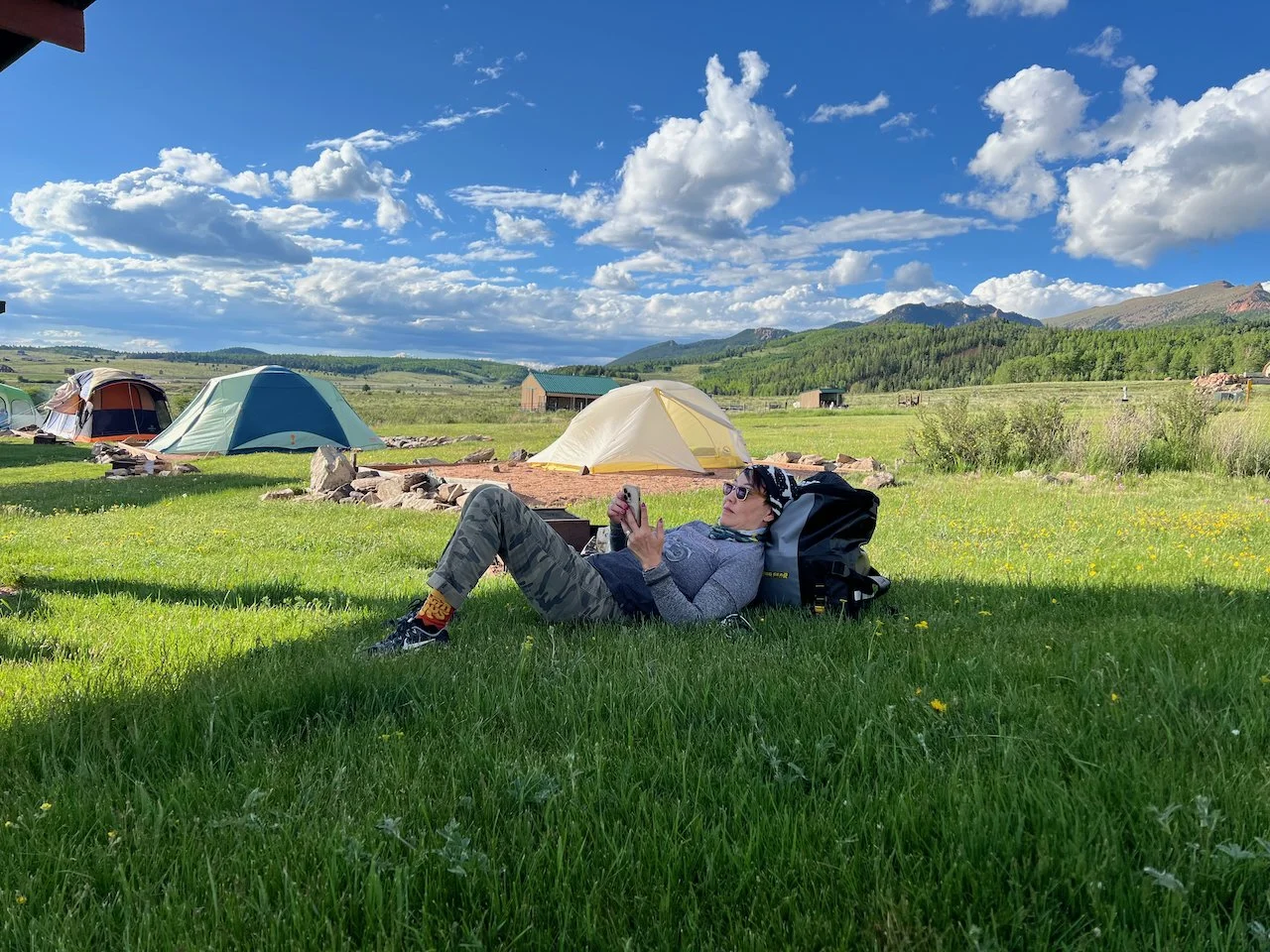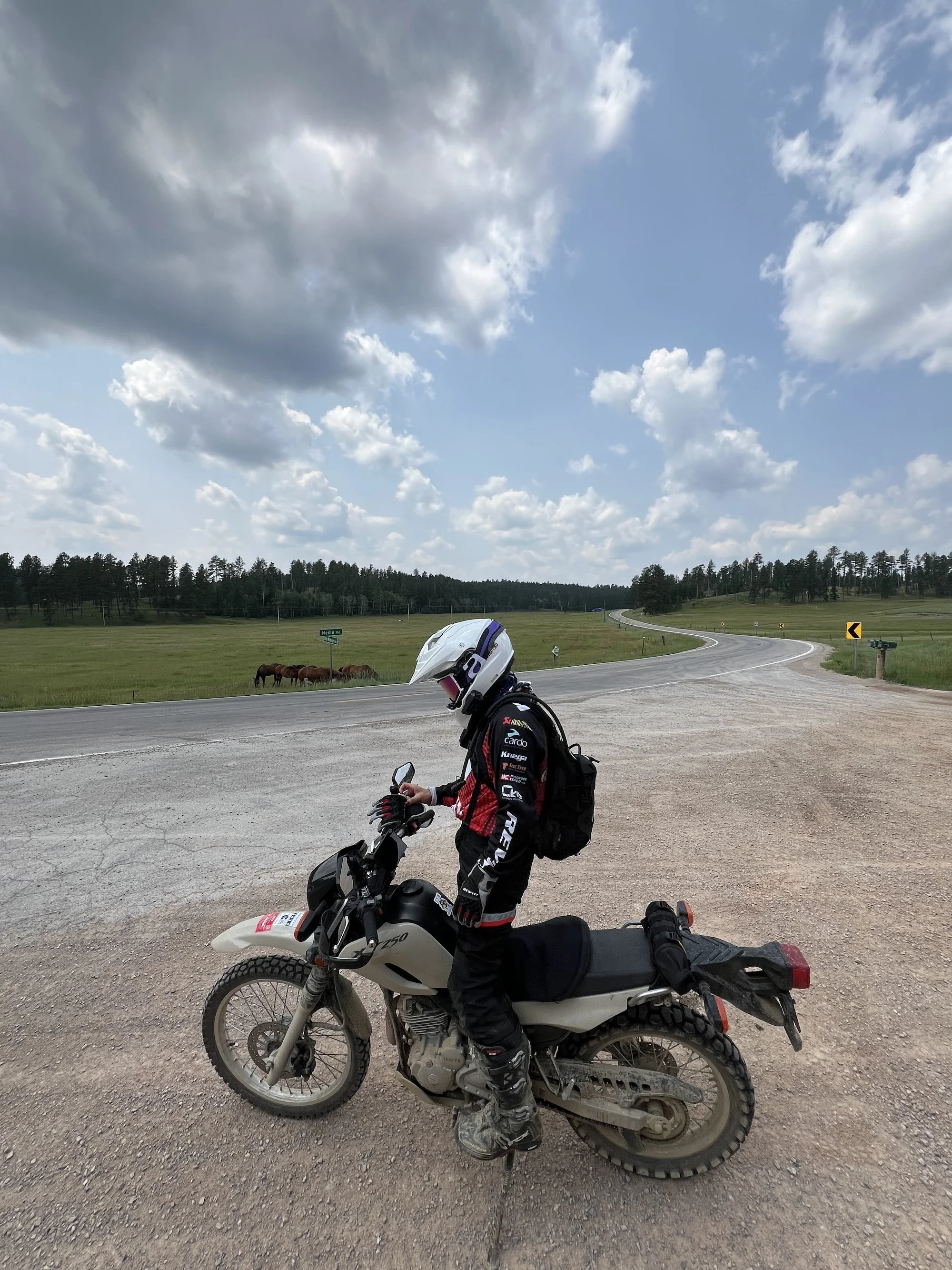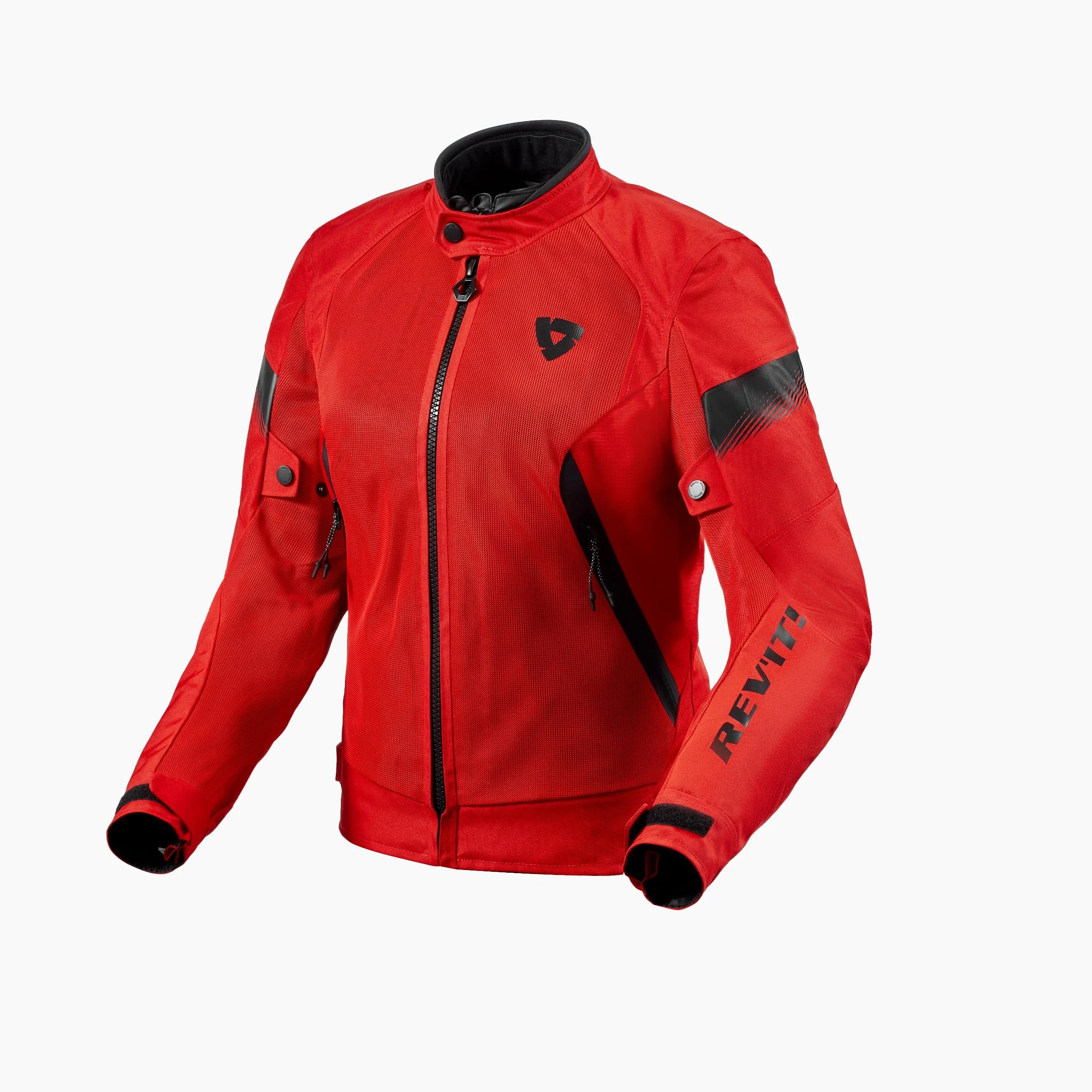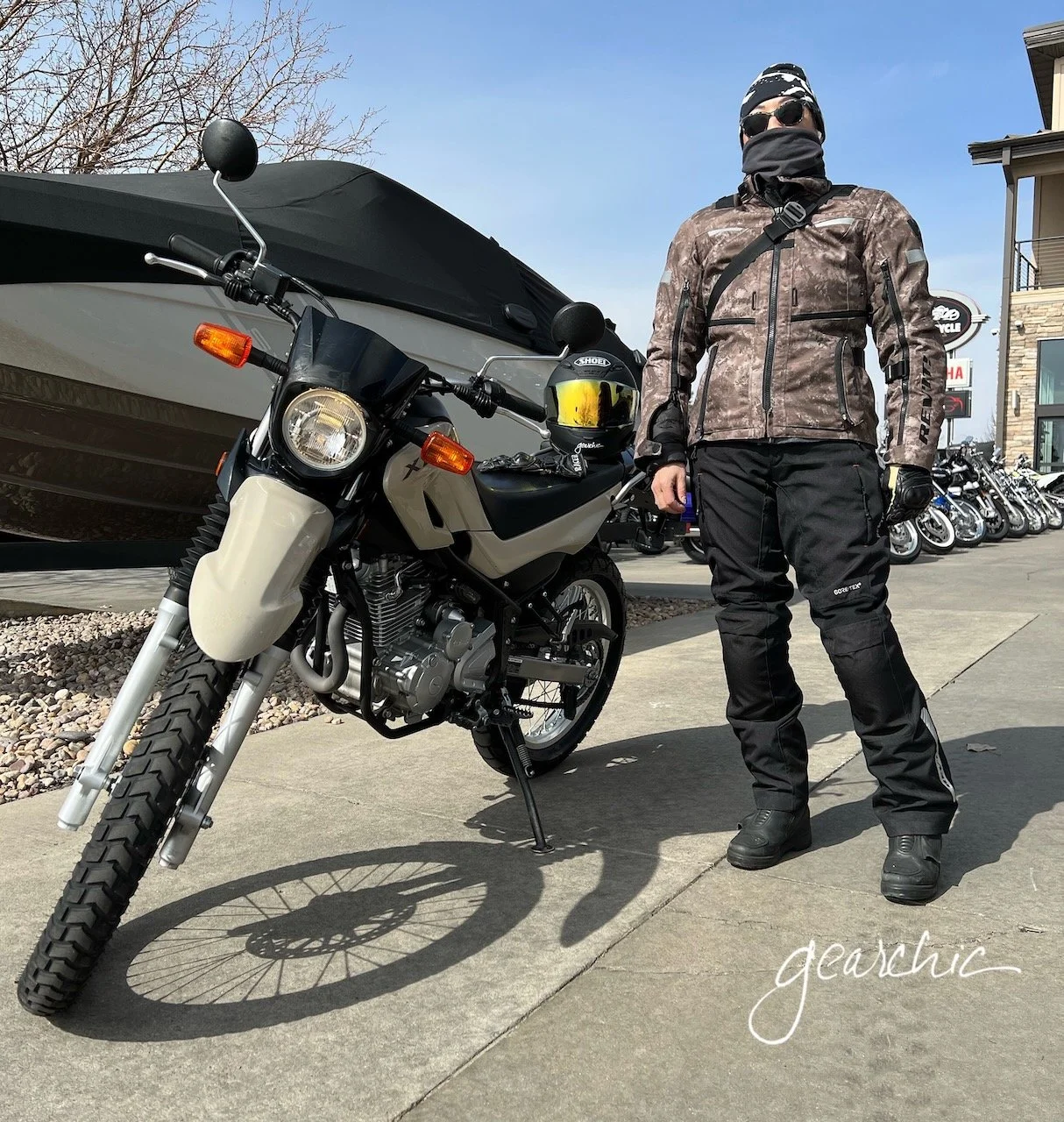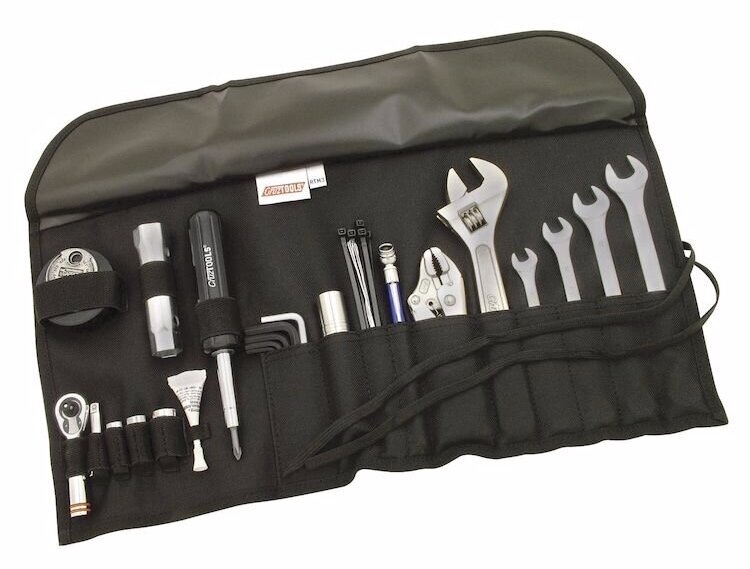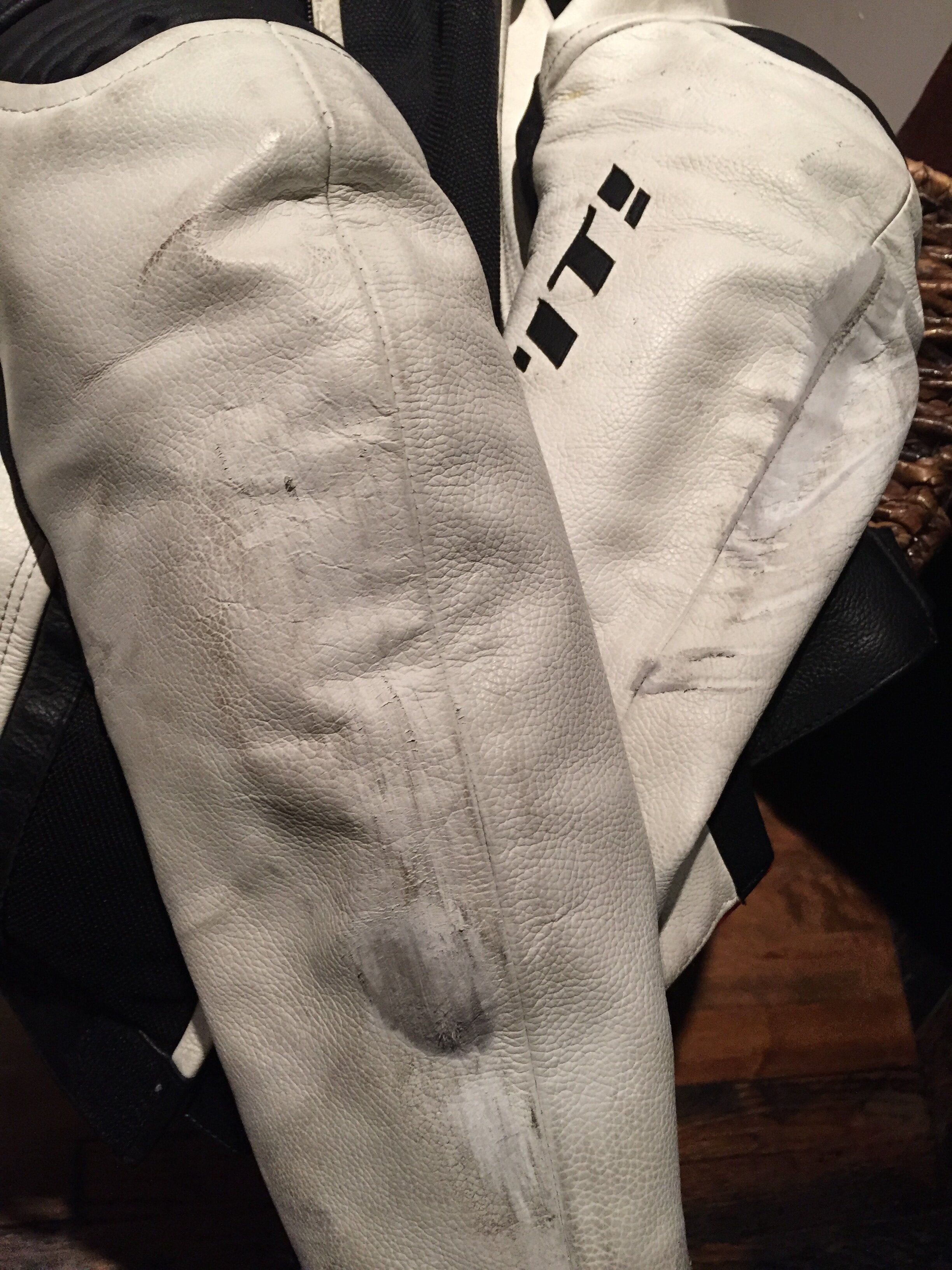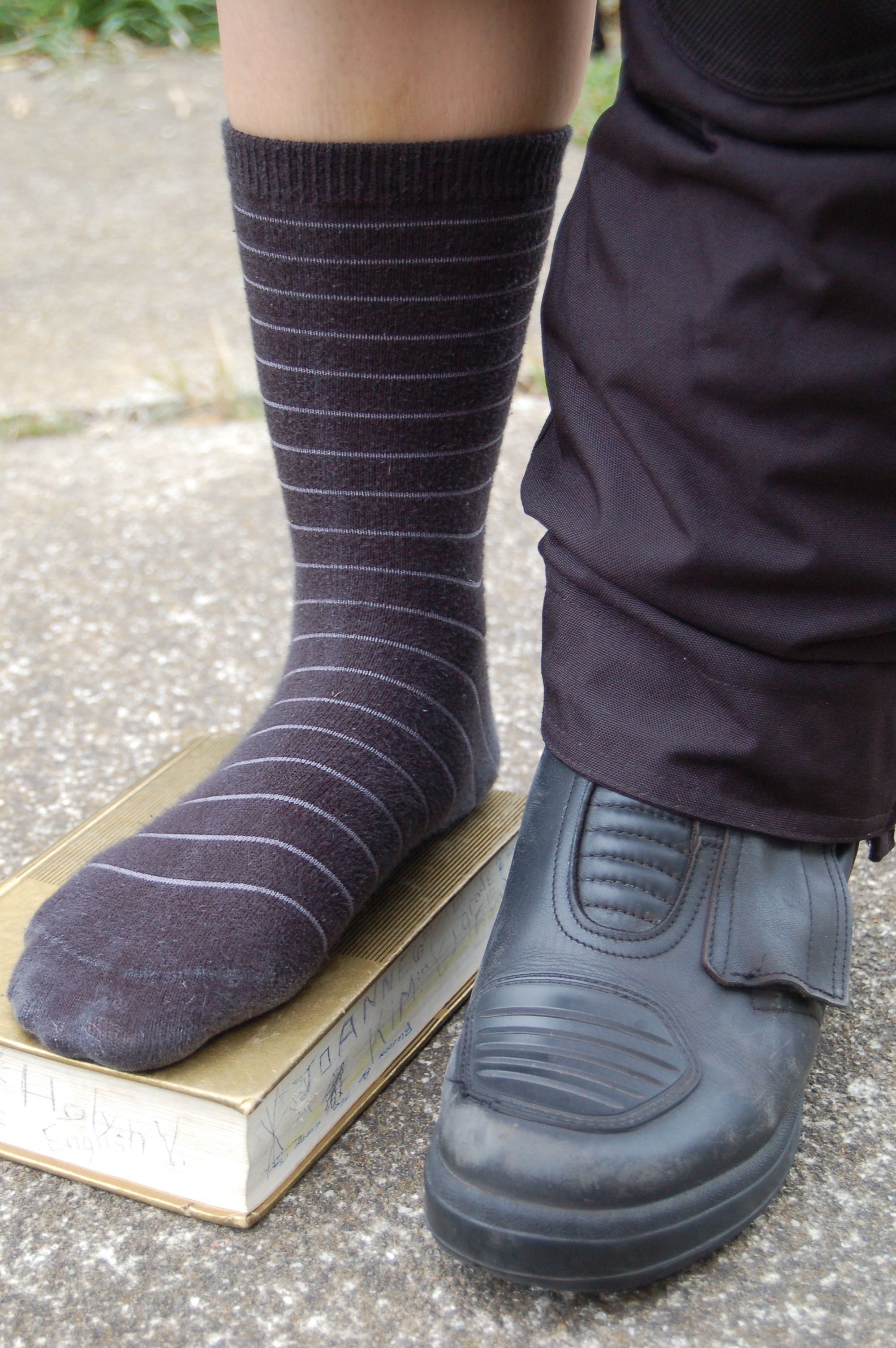Me in 2005? on our (me+husband) first long ride outside of San Francisco to Half Moon Bay when we still lived in San Francisco. Up until that point, I had only ridden inside the city limits.
Since Corona Virus has forced me to work online for RevZilla Chat Customer Service, I’ve been chatting and emailing with a lot of newer riders. And everytime I chat with someone, I am reminded of how exciting and scary learning to ride was.
When I was riding this 2003 Ninja 250 there were virtually no other small displacement motorcycles available compared to the choices that exist today.
The women’s gear market was really just starting to change and grow, and events like the Womens Sportbike Rally didn’t really exist.
So much has changed in the last 15 years for new riders, especially motorcycles!
With that, a lot has changed, especially options in everything from gear to motorcycles to accessories.
Here are a few things that I hope will help you or some other new motorcyclist that’s just being born in this decade. These are very broad, because you can deep dive into all of these areas, like gear :). But this is just to give you some high level things to think about and prioritize as it works for you.
These are in no particular order:
CURZTOOLS RTM3 METRIC TOOL KIT
TOOLS
If you're really into tools and want a great comprehensive kit, I recommend putting together a kit based on this company's motorcycle toolkit. Very simple tools to get started without feeling terribly overwhelmed.
Cruztools RTM3 Metric Tool Kit; they also offer one for HD and BMW
But if you’re really into tools, this is the one that my husband and I use for our two bikes. But we got really lucky because we preordered them for half the price when they launched a year ago. It features an incredible selection of wrenches, screwdrivers, sockets and more. Every tool is cut out and fit to it’s specific spot. It comes with the entire toolbox with every tool inside.
The elbows on my Revit leathers after crashing 5 years ago on a low side. This is one of the many reasons I love them so much!
GEAR
Make it a point to google every piece of gear you intend to purchase along with the word "crashing" because you want to know exactly what that piece of gear might do for you. This is especially important if you want to see the tangible benefits of choosing shoes v. boots or non motorcycle clothing v. real motorcycle clothing or half helmets v. full face helmets.
I’m not going to go on and on about this topic because well, you’re on my website, right?!
YOUR FIRST MOTORCYCLE
I’m not going to tell you that you have to buy a used bike, or that you should. Just that your first motorcycle should have a few qualities:
Encourage and inspire you to learn and grow as a rider at an exponential level. Anything that is making it 10x’s harder for you to figure out things, learn to ride proficiently and increase confidence is never good for your success and confidence. (example: Your S/O give you their 1,000cc motorcycle which was perfect for them but not for you other than that it was free)
Be so affordable that you can easily spend what you need to on proper riding gear because gear is never optional
Make you look forward to ride, not dread it. Whatever the reason, whether it’s mental or physical, if a motorcycle doesn’t make you happy then it’s time to move ON. Acknowledge the mistakes you may have made in choosing it or buying it, but learning to ride is one of those things that truly depends on a proper match of bike and owner to really progress, figure things out and ride well enough so you don’t panic going into a corner.
Generally, you can't go wrong with Japanese Brands because they offer lots of accessories and affordable pricing like insurance, parts and more. Think of them as the Hondas and Toyotas of the motorcycle world, very reliable and affordable. They're excellent options for learning and figuring things out.
Also, think about the fact that you're learning in the beginning, so it's normal to upgrade your bike later when you're ready to move on. You always want to think about what your current riding needs, in order to build the experience because it’s all about making that learning curve as fun as possible.
Mine came with 3 booklets: an Owners Handbook, Service Records Book and Riding Tips
OWNERS MANUALS
Read your owners manual from cover to cover. If one isn't included when you buy the bike, you can typically download it from the manufacturer. The basic owners manual is typically shorter, not super detailed (like torque value for a particular bolt or nut).
So many little problems come up that can be easily resolved by just following your manual. It has little details like proper tire pressure, correct oil weight, warning light definitions, and what every basic part exists on your motorcycle.
I also recommend searching for a full Service Manual that has very, very detailed schematics and diagrams about every component on the motorcycle like Electrical diagrams, removing your engine, etc. Even though you may not reference it as much as your standard owners manual, it will still be an incredibly useful reference tool especially if you’re shopping for bike parts and to know how about certain pieces on your motorcycle!
This simple list of frequent safety checks works for any motorcycle! I wouldn’t say that you need to do it everyday unless you ride everyday. But it’s also reasonable to do it every other day if you ride that much :)
Think of it like any friendship or person you trust being close to you. Isn’t it important to get to know them a little bit better so you can learn to trust them? It’s very much a relationship, and one that you will be working on and learning about every time you ride.
Getting to know your bike like it’s your best friend is So Important!
FORUMS
For pretty much every motorcycle in the world, there is an online forum that exists where thousands of riders like yourself are talking about everything there is to know about that motorcycle. As an example, here’s a forum dedicated to Triumphs: TriumphRat.net. There are subforums dedicated to all the various styles of Triumphs that exist. You can dive into topics like what tires are best, what oil you should use and more. They are the best interactive manual for your motorcycle and I guarantee you’ll find one for whatever you are riding. Google is your friend! When in doubt Google It.
BOOKS
You can’t read your way through motorcycling, but it certainly helps to have some resources available for some general, no nonsense feedback and advice. These two are a couple of my favorites right now that I really appreciate and enjoy:
Woman's Guide to Confidence and Motorcycling By Alisa Clickenger. Building confidence is the #1 struggle most riders experience in the beginning of their riding careers. It doesn't matter that you're a male. The concepts all apply to you as well. It's just that the majority of men won't admit that this is a problem in their riding. You will absolutely benefit from the tips and advice that she shares. She's a very good friend and colleague of mine, so that's why I recommend it.
Riding in the Zone by Ken Condon. This book is a top level view of everyone should approach motorcycling in order to become the most competent, proficient, safe and confident rider. He covers a little of everything but mindset in motorcycle is far more important than physical ability. Anyone can squeeze a lever or press a pedal. But not everyone can make the right decisions that will literally save your life. Ken’s tone is like a motorcycle guardian angel, someone giving you solid advice that will stay with you and make you feel cared for without being talked down to.
That’s all for now. I’m sure more things will pop into my head but these are just a few things that stood out to me recently.
Feel free to add any tips or advice that you’d like to share in a comment below.
Wherever you are, Ride Safe and Be Well.

